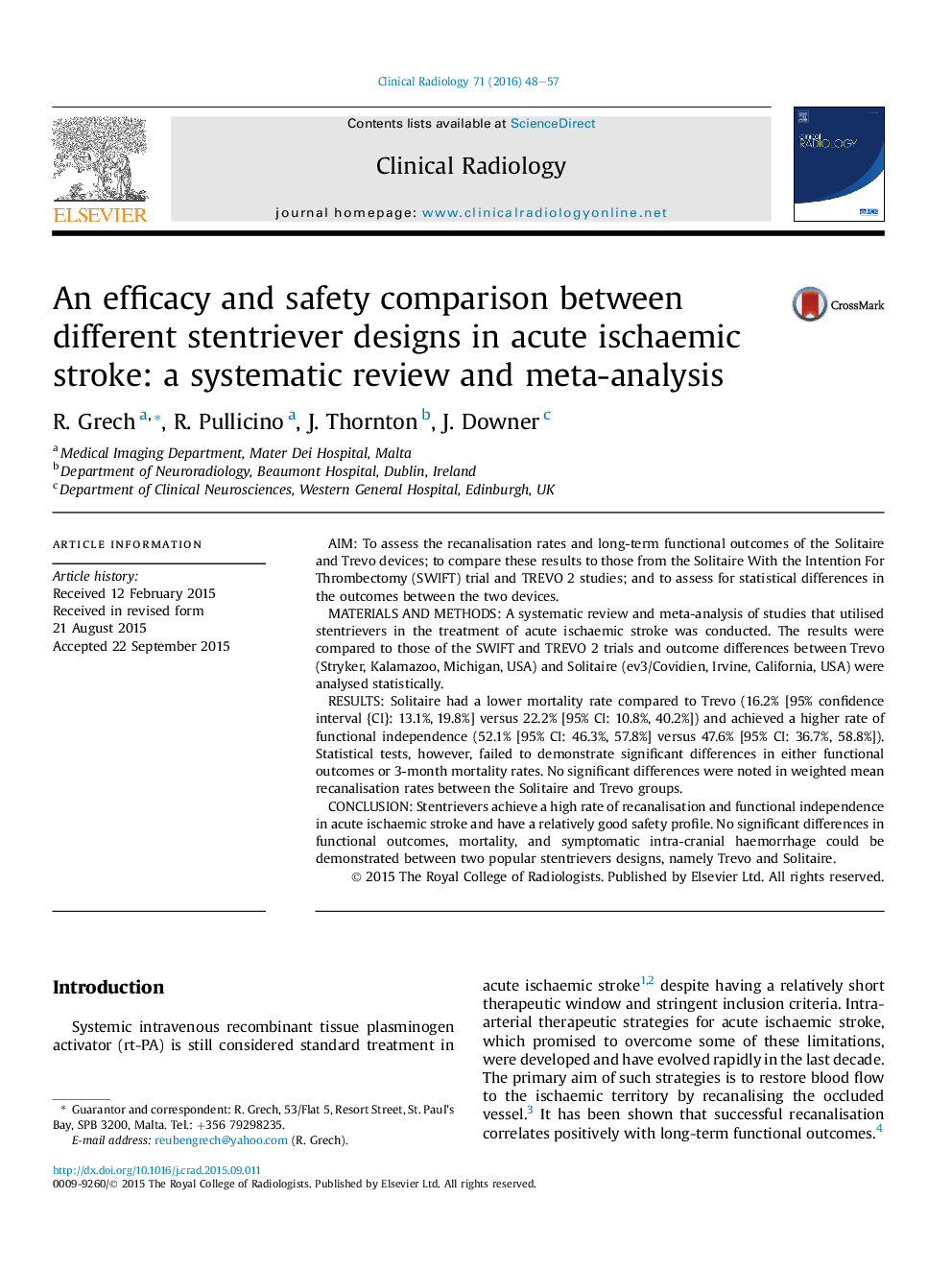| Article ID | Journal | Published Year | Pages | File Type |
|---|---|---|---|---|
| 3981437 | Clinical Radiology | 2016 | 10 Pages |
•We conducted a meta-analysis of stentrievers in acute ischaemic stroke.•We assessed recanalization rates and functional outcomes of stentrievers.•We also explored any differences between different stentriever designs.•We failed to demonstrate significant differences between Trevo and Solitaire.
AimTo assess the recanalisation rates and long-term functional outcomes of the Solitaire and Trevo devices; to compare these results to those from the Solitaire With the Intention For Thrombectomy (SWIFT) trial and TREVO 2 studies; and to assess for statistical differences in the outcomes between the two devices.Materials and methodsA systematic review and meta-analysis of studies that utilised stentrievers in the treatment of acute ischaemic stroke was conducted. The results were compared to those of the SWIFT and TREVO 2 trials and outcome differences between Trevo (Stryker, Kalamazoo, Michigan, USA) and Solitaire (ev3/Covidien, Irvine, California, USA) were analysed statistically.ResultsSolitaire had a lower mortality rate compared to Trevo (16.2% [95% confidence interval {CI}: 13.1%, 19.8%] versus 22.2% [95% CI: 10.8%, 40.2%]) and achieved a higher rate of functional independence (52.1% [95% CI: 46.3%, 57.8%] versus 47.6% [95% CI: 36.7%, 58.8%]). Statistical tests, however, failed to demonstrate significant differences in either functional outcomes or 3-month mortality rates. No significant differences were noted in weighted mean recanalisation rates between the Solitaire and Trevo groups.ConclusionStentrievers achieve a high rate of recanalisation and functional independence in acute ischaemic stroke and have a relatively good safety profile. No significant differences in functional outcomes, mortality, and symptomatic intra-cranial haemorrhage could be demonstrated between two popular stentrievers designs, namely Trevo and Solitaire.
